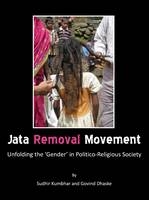
Jata Removal Movement
Cambridge Scholars Publishing (Verlag)
978-1-4438-1305-1 (ISBN)
Sudhir Kumbhar, an Indian based academician and social worker, has completed an M.A. (Sociology) and M.Ed (Educational Evaluation and Measurement). Associated with the M. N. Roy Institute for Non Formal Education and Research, he has been engaged in several movements for rational thinking and radical humanism. He is an authority on Jata Removal and environmental issues, and has delivered more than 500 speeches on various topics. Govind Dhaske is a professional social worker practitioner and researcher from India. After receiving his social work education and training from the prestigious Tata Institute of Social Sciences, he has been engaged in development practice with various development organizations. He writes extensively on social and development issues, and has several publications to his credit. Gender, equity and rural development are his priority areas of research and action.
| Verlagsort | Newcastle upon Tyne |
|---|---|
| Sprache | englisch |
| Maße | 148 x 212 mm |
| Themenwelt | Sachbuch/Ratgeber ► Gesundheit / Leben / Psychologie |
| Sozialwissenschaften ► Pädagogik ► Sozialpädagogik | |
| Sozialwissenschaften ► Soziologie ► Gender Studies | |
| ISBN-10 | 1-4438-1305-2 / 1443813052 |
| ISBN-13 | 978-1-4438-1305-1 / 9781443813051 |
| Zustand | Neuware |
| Haben Sie eine Frage zum Produkt? |
aus dem Bereich


